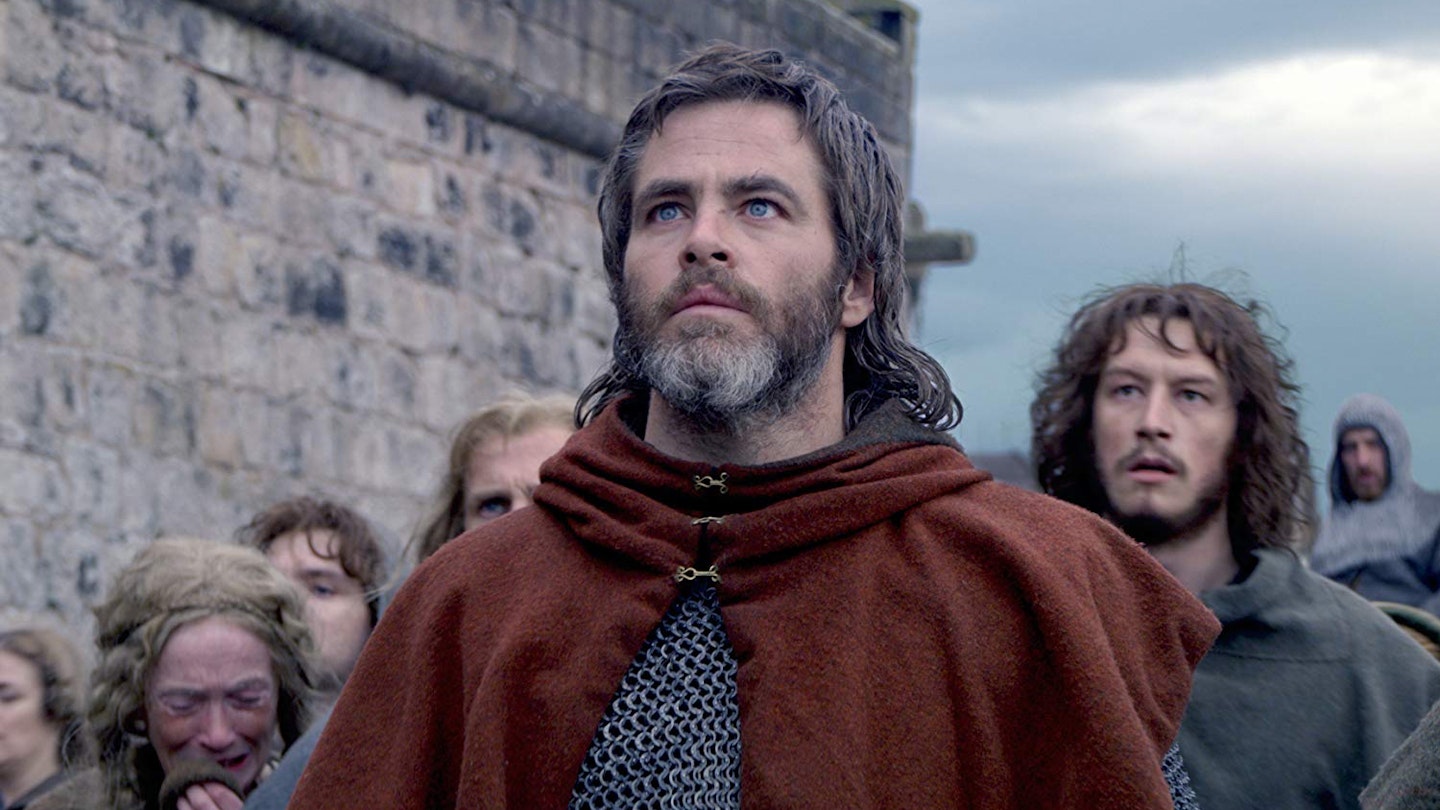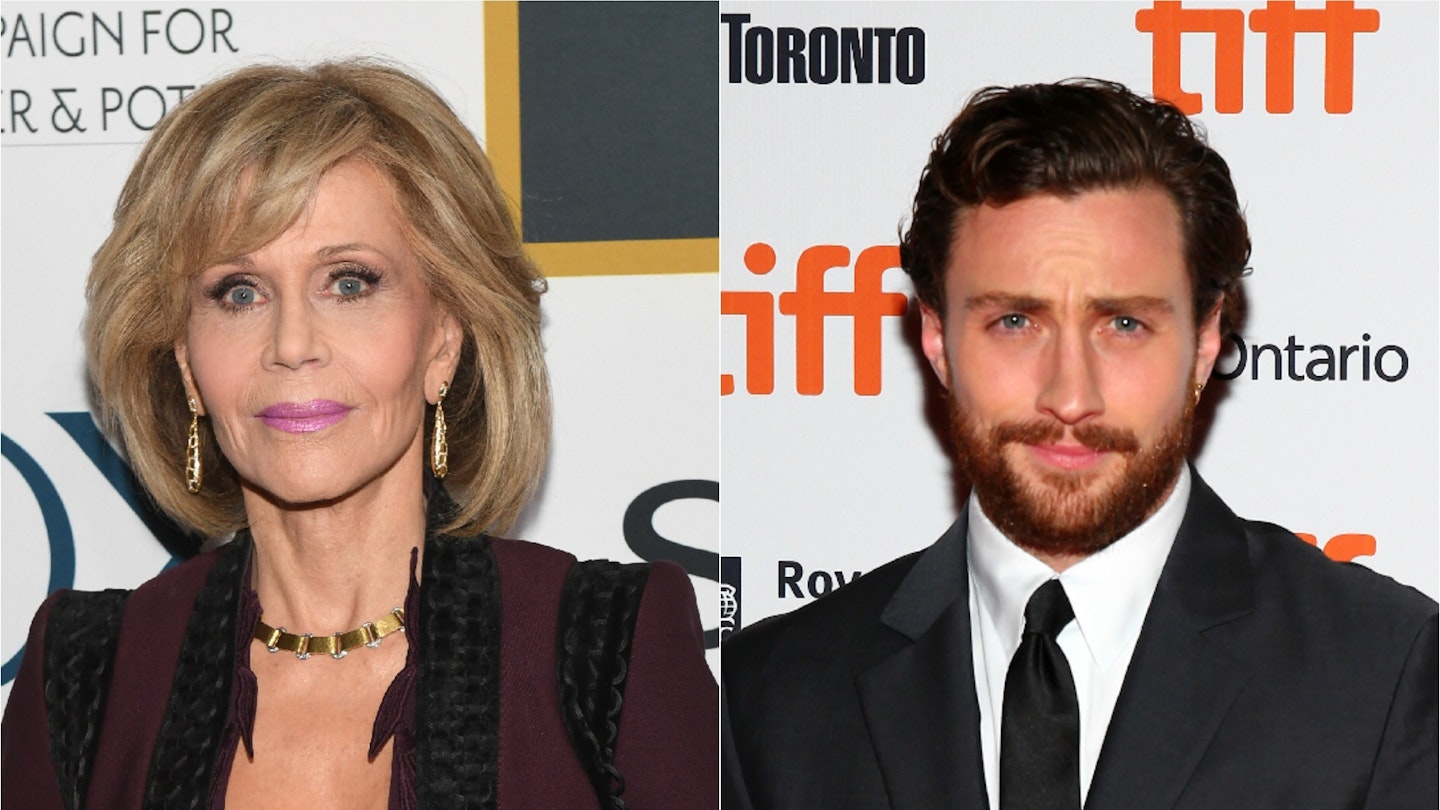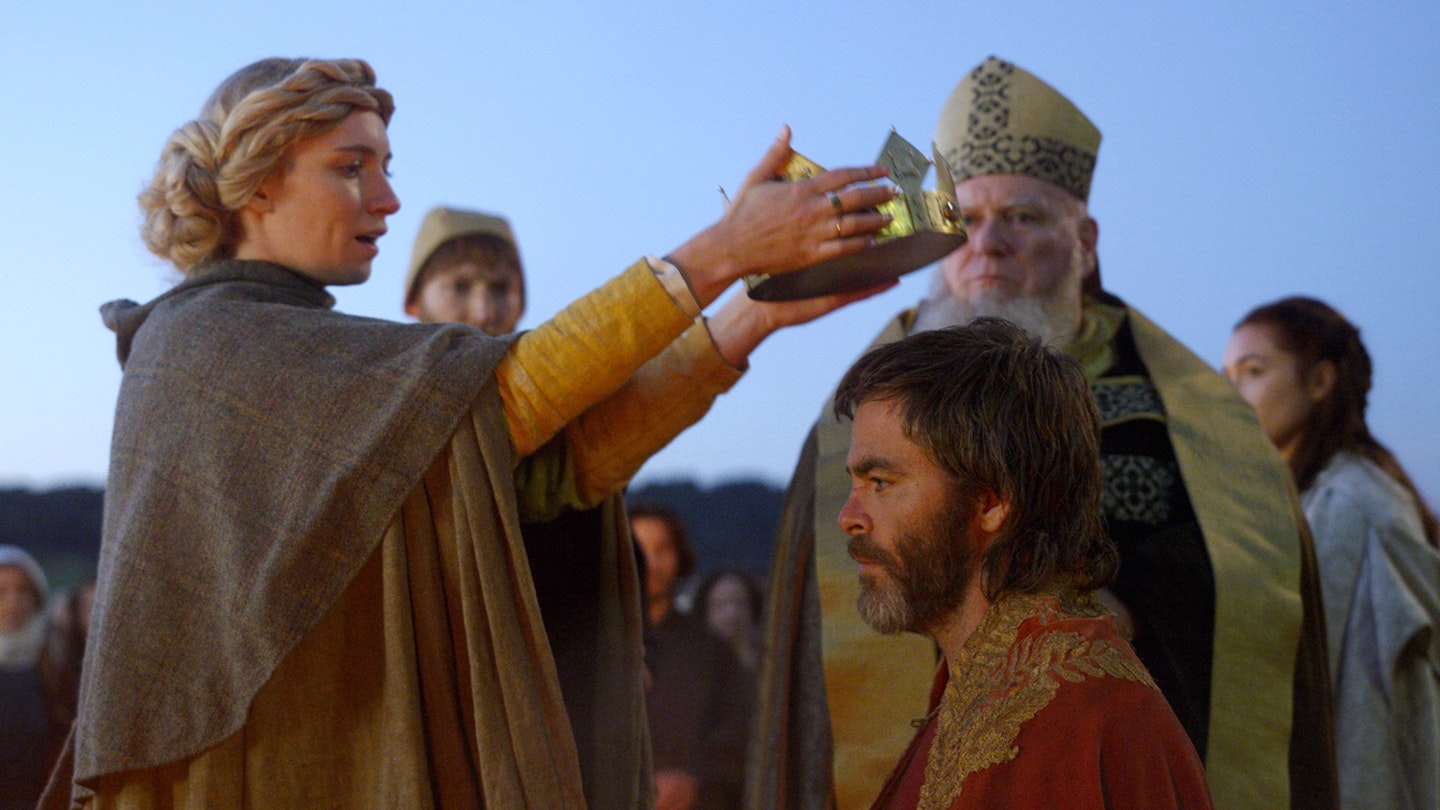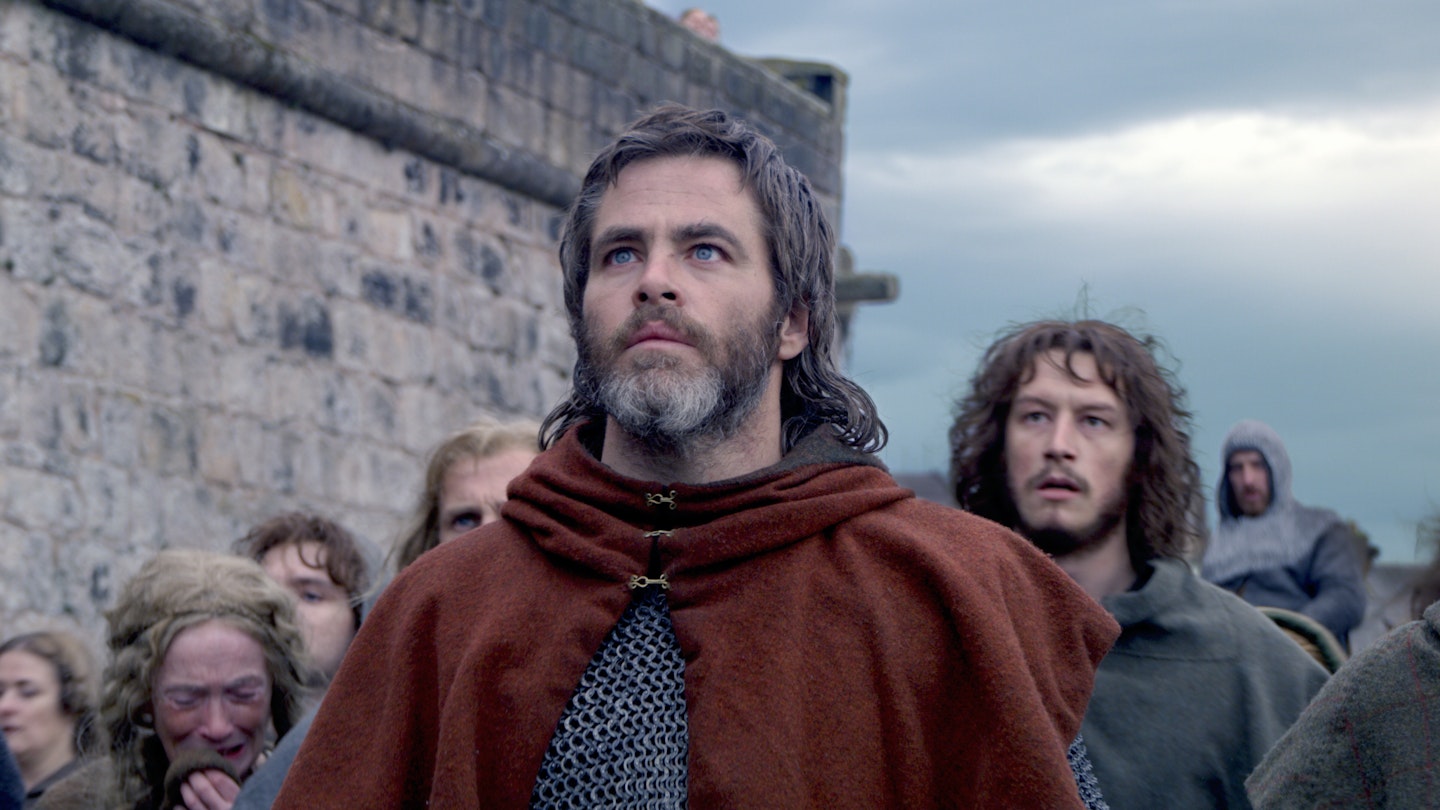The shadow of Braveheart looms large. Without that depiction of gloriously chaotic battles where underdogs defeat a superior foe, we wouldn’t see half as many knights in muddy armour on screen today, nor the steady stream of medieval Scottish romances and rebellions on TV and film ever since. Early looks at director David Mackenzie’s take suggested he was aiming for something darker and more historical, but while the final result is considerably less anachronistic, it could almost be a direct sequel to Mel Gibson’s effort.
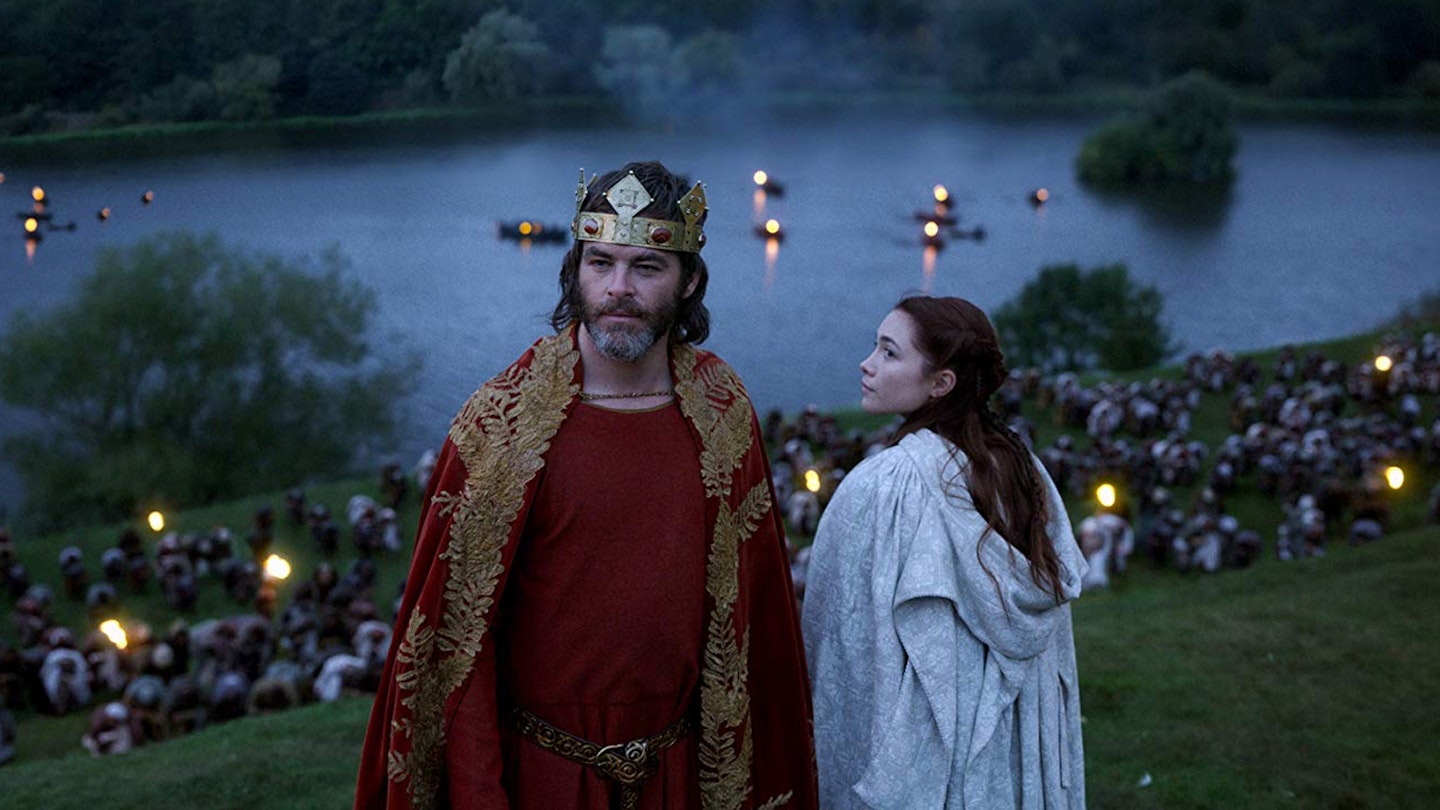
Chris Pine is on charismatic but reined-in form as the Bruce himself, reluctantly swearing fealty to England when we meet him, but soon taking up arms against them — despite knowing and fearing the cost of another failed rebellion. He’s similarly slow to move in his personal life. Still in mourning for his first wife, he greets the good match offered, or rather mandated, by King Edward I (Stephen Dillane) with dutiful distaste. The courageous and compassionate Elizabeth (Florence Pugh), however, quietly sets out to win him around, and convinces him she’s committed to his cause despite her English birth.
The battle scenes are as spectacular as one could wish.
Mackenzie is strong on detail, beautifully depicting the sheer weirdness of noble marriage in the Middle Ages. If the love story is ultimately cut short — the cuts made to the film after its Toronto festival debut seem to have hit that subplot hard — there’s enough here to give the gloomy guerilla warfare a little lift. The battle scenes, meanwhile, are as spectacular as one could wish, judiciously filled out with CG but with enough physical heft to make you wince at the squelch of gore and muck and metal.
There are nods to nuance, in the discussion of the gaping holes left in the code of chivalry, but aside from some complexity for Robert himself, we’re mostly looking at hissable baddies and loyal retainers. Like Mel Gibson before him, Mackenzie enjoys finding a new way to show Edward I as one of history’s worst fathers, and the eventual Edward II of England (Billy Howle) as a spectacular loser. James Cosmo’s Bruce senior and Tony Curran’s Angus are stuck in overly familiar gruff counsellor roles, though they’re typically well played, while Aaron Taylor-Johnson has more fun as berserker James ‘The Black’ Douglas. Think Begbie with a broadsword and you’re pretty close.
It’s a film with so many dramatic reversals you’ll head straight down a Wikipedia rabbit hole afterwards to check out what really happened — but don’t research too early lest facts spoil all the fun. Mackenzie has taken some liberties — the chronology is a little woolly at times — but at least some of the more outrageous events here are genuine, and thankfully no-one paints their face blue a millennium too late or wears tartan 500 years early.
As the Bruce’s struggle for independence comes to a climax, it’s clear that whatever its intentions, Outlaw King ends up every bit as broad and soppy as Braveheart before it. Perhaps that’s inevitable, or even desirable, given the Scottish character and the big emotions of the Middle Ages. But it makes more for rabble-rousing entertainment than true historical grit.
